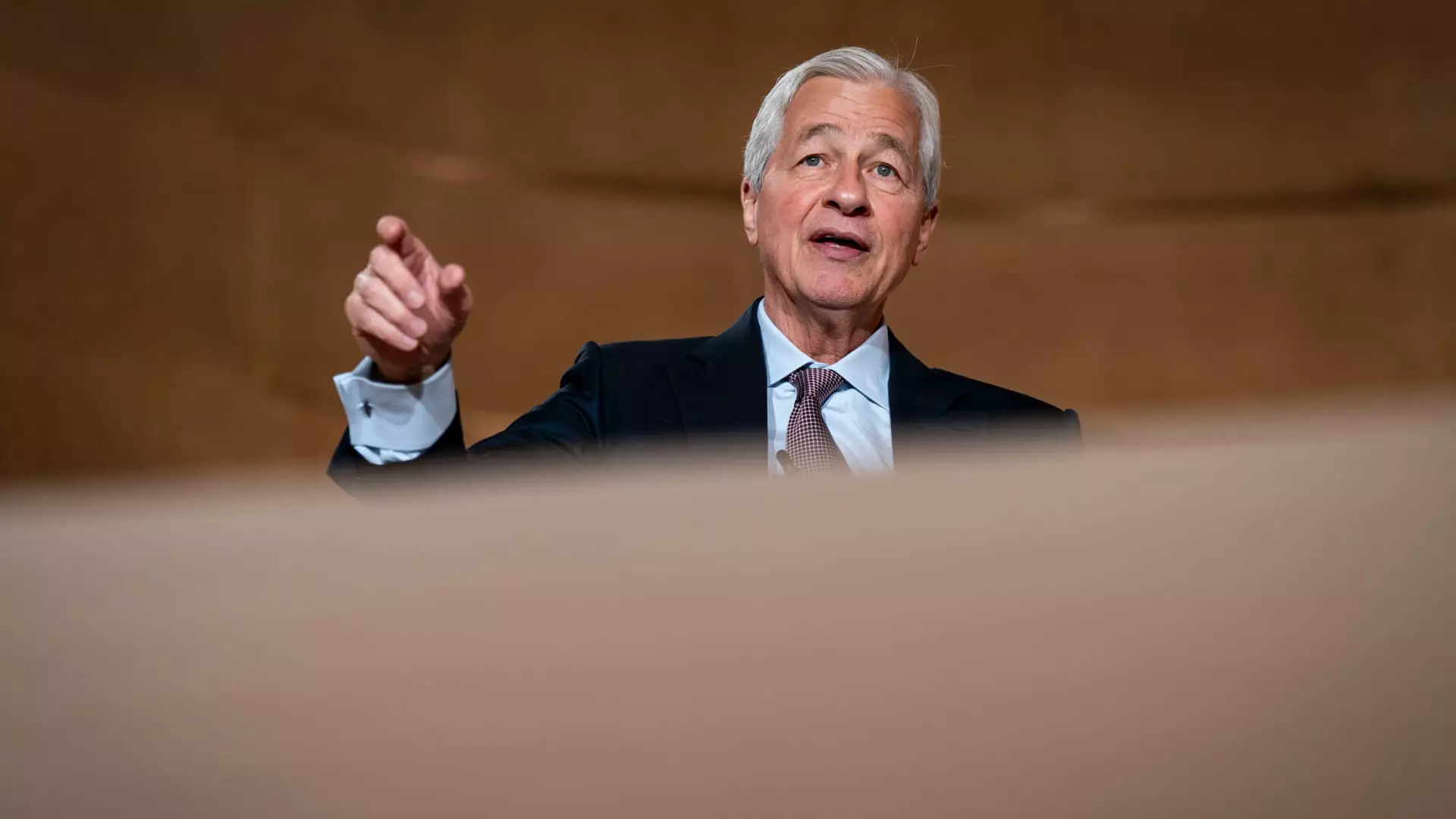In a brazen assessment delivered at JPMorgan Chase’s annual investor day, CEO Jamie Dimon illuminated a major rift between Wall Street’s optimistic outlook and the lurking, underappreciated risks tethered to the U.S. economy. His skepticism cuts through the daily din of market exuberance driven by a resurgent stock market. Dimon, who stands at the helm of the country’s largest bank, warns that the current landscape is flowing with complacency—an alarming mindset given our unprecedented national deficits, escalating international tensions, and the peculiar lull in inflationary threats that could catalyze a storm. Dimon’s commentary serves as a reality check in a society where financial narratives often cloud genuine risks.
Dimon articulated concerns that have practically faded from mainstream discourse: the heavy burdens crafted by record-high deficits and unstable tariff policies. He pointedly stated, “People think they can manage all this. I don’t think they can.” This viewpoint signals a glaring lack of appreciation among investors—one that dangerously trivializes the impact of our country’s growing debt and the nuances of expansive central banking operations. Dimon’s warnings resonate deeper than mere rumblings; they underscore a systemic vulnerability riddled with delusions of safety that are hard to ignore.
A Fraying Economic Fabric
The fallout of constant policy shifts is palpable, leading many corporate clients to adopt a posture of cautious deliberation. Leaders across industries seem to echo Dimon’s concerns as they adopt a “wait-and-see” mentality toward acquisitions and business moves. This sentiment echoes through the recent downgrading of the U.S. credit rating by Moody’s, a decision reflecting rising trepidation about our fiscal trajectory. The notion that such substantial deficits can be managed while the ethos of robust economic growth continues to flourish is a delusion, at best, and a recipe for disaster, at worst.
On the frontlines of investment banking, projections for earnings growth among S&P 500 companies are already in decline, a foreshadowing of more adverse adjustments on the horizon. Dimon asserts that a full zero percent growth is a likely outcome in the coming months—a benchmark that, if reached, would drag down stock prices considerably. This leads us to a grim reality; robust earnings estimates are tethered to a market that is ultimately basking in the glow of false expectancy. Without clarity or stability, the prospects for robust corporate performance are chillingly dim.
The Stagflation Specter
Perhaps the most harrowing revelation brought forth by Dimon is the mention of stagflation—the dreaded economic scenario where stagnation drapes itself over inflation. The very mention of stagflation sends shivers down the spines of economists and policymakers alike, yet Dimon posits that the chances of its emergence are decidedly underestimated by today’s investors. As he stated, the odds are roughly double than what is currently presented. This acknowledgment should send ripples of concern throughout the financial sector, particularly since history teaches us that such economic phenomena rarely emerge without warning.
The calculations of central bankers, who are currently dancing a tightrope of monetary policy, become even murkier. If Dimon’s predictions materialize—and historical trends often lean towards bleak realizations—then we might find ourselves ensnared in a vicious cycle of uncertainty and downturn that reverberates throughout the global economy.
The Imperative for Vigilance
As conversations unfold regarding the future of JPMorgan with a potential shifting of the CEO mantle, one can’t help but notice that the real leadership challenge extends beyond boardroom strategies. Indeed, it resides in fostering a culture of vigilance among investors, executives, and policymakers alike. The primary narrative should pivot from one of absent-minded optimism to one of prudent calculation; the stakes are simply too high.
Dimon’s perceptiveness and candor serve as a clarion call against self-delusion, urging all stakeholders to shed complacency in favor of a scrutinizing gaze on economic realities. In the unpredictable theater of global finance, it’s the realism borne from such honest discourse that can equip us to tackle the weighty challenges looming in our economic future. The necessity of awareness, resilience, and preparedness has never been more paramount—a lesson that transcends mere financial metrics and calls for a profound reevaluation of our current path.


Leave a Reply